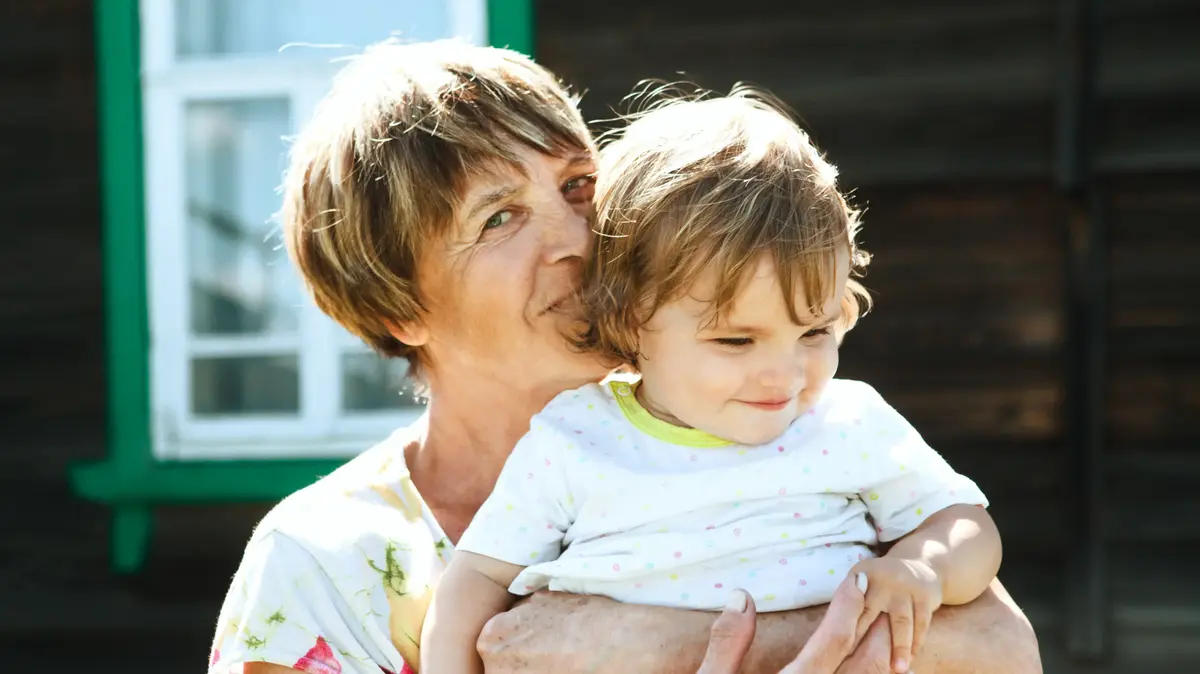Your mother is really nicer to grandchildren than to you, and that's scientific
A study that examined the brain activity of grandmothers found that while they try to understand what their children are going through, when it comes to grandchildren they respond straight from the belly and experience a special kind of empathy
Walla!
health
30/11/2021
Tuesday, 30 November 2021, 08:01 Updated: 08:42
Share on Facebook
Share on WhatsApp
Share on Twitter
Share on Email
Share on general
Comments
Comments
Do you sometimes think that your mother is much nicer to your children than to you?
It's not in your head, new research shows it has scientific proof.
Unlike other primates, humans rely on the help of others to raise their children.
Many times, children thrive more when there are other adults involved in their lives - like grandmothers, for example.
So explains the author of the new study, James Rilling, a professor of anthropology and psychiatry at Emory University in Atlanta.
In his research, Rilling shows that the great importance of grandmothers in the lives of their grandchildren can even leave neurological marks.
The researchers found that grandmothers who were shown pictures of their grandchildren had a neurological response in brain areas identified with emotions such as empathy and motivation.
The study, published in the journal Proceedings of the Royal Society B, involved 50 women who reported having a positive relationship with their grandchildren and a high level of involvement in their lives.
More on Walla!
How many hours a day do Israeli parents spend with their children?
To the full article
All study participants underwent fMRI (functional MRI) imaging, which is able to show changes in blood flow during brain activity. During the examination, the researchers presented them with images of the grandchild, an unfamiliar child, an unfamiliar adult, and the same-sex parent of the grandchild ( In some cases the parent was the biological offspring of the subject, while in other cases it was their spouse).
Maybe this is why women prolong life after childbearing age?
Grandma and Counter (Photo: ShutterStock)
There have been studies in the past that have examined the brain functions of parents and children, but this study is the first to allow us to peek into what is going on inside grandmothers' minds as they respond to their grandchildren, Rilling said. "One of the strong motivations for conducting this study was the so-called 'grandmotherly hypothesis', which hypothesizes that postpartum women's longevity developed due to the good that can grow in children as a result of grandmothers' involvement and care in their lives," Rilling explained in an email to CNN.
Some of the findings of the study were not at all surprising: for example, grandmothers had a much stronger brain response to pictures of their grandchildren than to pictures of children they did not know. But it was more interesting to find out the difference between the grandmothers' brain reaction to the pictures of their grandchildren compared to the pictures of their children or their spouses. When the grandmothers saw the grandchildren their reaction was in areas linked to emotional empathy, while the children and in-laws evoked areas of cognitive empathy.
The parental brain is activated even in old age, and may never really turn off.
Grandmother with grandson at playground (Photo: ShutterStock)
More on Walla!
Mother built an ingenious device that would allow her children to hug Grandma safely
This is what makes men more involved fathers
Living with a quiet heart: An accurate and quick diagnosis that saves time and saves lives
Once a mother, always a mother
"Emotional empathy is to feel the emotions that the person in front of you is feeling. Cognitive empathy on the other hand, is to understand what that person is thinking and feeling and why," the author of the Rilling study explained the difference between the two types of empathy.
This may mean that grandmothers are "wired" to try and figure out what their adult children are going through, but when it comes to their grandchildren they have a much more emotional response.
"Our results show that not only are older women's brains activated when they become grandmothers, but also that areas of the brain associated with parenting are activated at a later age and they may never stop working. Once a mother, always a mother," said Judy Poloski, a brain researcher and therapist who Was involved in this study.
"It joins and even expands previous findings that have indicated a lasting effect of parenting on the brain well into old age," she concluded.
health
parenthood
Tags
grandmother
Grandmothers
parenthood
Grandchildren
Family
brain














